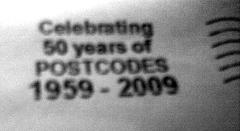High-speed internet links are something that makes FOSS development much easier, but I’m still having reliability problems with my ADSL. A fringe benefit of moving to a more open Linux-based router is that I can see what’s going wrong in more detail. But now I have to gamble nearly two hundred pounds in order to get the service providers to continue trying to find the bug! Sorry for the length, but let me explain how bad broadband in rural England is just now…
Outside the big cities with their cable networks, Company A owns the lines, Company B provides the services and we buy those services from reseller Company C. Sometimes the same company is A and B or B and C, but never all three. Most of the companies who are B won’t be C themselves – in other words, they don’t sell retail, but they nearly always seem to have a main or preferred retail partner.
Company A is nearly always OpenReach, part of BT Group, the telephone monopoly privatised back in the 1980s but still somehow keeping its landline monopoly. Why is that allowed?
Company C has been The Phone Co-op for me for the last few years. Back in February, I changed how I bought my services, combining phone and broadband into one purchase. They’d been two purchases mainly because I switched my ADSL from Pipex to the co-op at a different time to switching my line to them. As I understand it, this change had the side effect of changing Company B from OpenReach to Opal Telecom. Opal are the provider business behind TalkTalk, hardest to use Broadband ISP 2009.
Since the change, I’ve been suffering unexplained disconnections, especially in the early evenings and at weekends. I’m pretty sure it’s Opal’s equipment to blame for two reasons:-
Firstly, this wasn’t happening until Opal became Company B, while Companies A and C are the same as before (when I had a stable but unspectacular 4Mbps connection).
Secondly, since changing my router, I can see LCP TermReq being sent by Opal’s PPP peers. Opal insist their equipment isn’t sending TermReq messages. My Netgear router disagrees, but I can’t seem to get anyone to take its pppd debug logs seriously.
So, I’ve complained to my supplier (Company C), they’ve pretty straightforwardly passed it to Company B and I’ve jumped through all the bloody silly hoops like using only wired connections to the router (yay, wires across the house), plugging the router into different phone sockets (yay, more wires across the house) and disconnecting everything from the phone sockets so Company A can run some voltage test (yay, uncontactability – just as well other software.coop workers can cover for me).
Now the next step is for some phone engineer to call. For this to happen, I have to agree that I will pay GBP 164 if a fault is found on my phone network instead of theirs. If I don’t, they will give up trying to find the fault.
I don’t really see why this is necessary: surely if there was a line fault, it would have shown itself on the old service? Also, the router says the line has no fault and the SNR and Attenuation are both fine but not great. Unlike most people, I’ve already had my house phone network tested with professional equipment (yay for network engineers in the co-op trying to avoid the painful state of British broadband bugfixing), but I’m still left betting hundreds of pounds on the phone engineers not pointing the finger at my network. What choice do I have?
I’ve read elsewhere about people giving up on ADSL and switching to mobile internet because then they have only one company to deal with. I can see some attraction in that, but I live in a village with poor mobile service and I suspect the forthcoming T-Mobile/Orange and T-Mobile/Three link-ups will soon make that less straightforward too. A confusopoly is probably more profitable to telephone companies.
Do most people bet a couple of hundred pounds to get their broadband fixed? How many broadband faults get ignored at that point? Why don’t the retail company Cs have access to enough Company B systems to lead the fault-finding instead of only being able to pass it on to people who seem to give replies that contradict the logs and won’t talk directly to customers? Is fixing this A-B-C three-companies-pass-the-buck system a necessity for Digital Britain? Why isn’t the government intervening to end the OpenReach monopoly outside the big cities?


